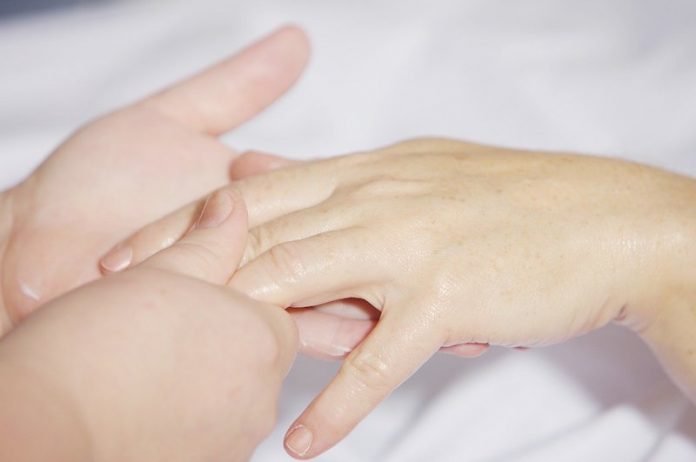
A new study from Chung Shan Medical University found there is a bidirectional association between nonalcoholic fatty liver disease (NAFLD) and psoriasis, especially for patients younger than 40 years.
The study is published in Frontiers in Immunology and was conducted by Shuo-Yan Gau et al.
NAFLD is the accumulation of liver fat in people who drink little or no alcohol.
The cause of NAFLD is unknown. Risk factors include obesity, gastric bypass surgery, high cholesterol and type 2 diabetes.
According to Mayo Clinic, psoriasis is a skin disease that causes red, itchy scaly patches, most commonly on the knees, elbows, trunk and scalp.
Psoriasis is a common, long-term (chronic) disease with no cure. It tends to go through cycles, flaring for a few weeks or months, then subsiding for a while or going into remission.2 May 2020.
In the study, the team analyzed data from Taiwan’s National Health Insurance Research Database to examine the bidirectional association between NAFLD and psoriasis.
The team found a strongly increased risk for developing psoriasis for patients with NAFLD while for younger patients with NAFLD, the risk was increased 1.3-fold.
For new psoriasis patients, the risk for developing NAFLD in the future was increased 1.28-fold compared with those without psoriasis.
the risk was higher for patients in younger psoriasis subgroups younger than age 40 years versus those in older subgroups.
The team says future studies should consider the mechanism influencing the pathogenesis and correlation between NAFLD and psoriasis and focus on the difference between different psoriasis severity subgroups.
The study is an effort of treating and preventing NAFLD and is in line with research showing that this healthy diet could cut NAFLD by half and that this nutrient supplement may help treat fatty liver disease.
A previous study has shown that in those with fatty liver disease, a person’s fat goes to their liver instead of their fat tissue, either because of an absence of fat depots, which is seen in the rare genetic disease lipodystrophy, or because the depots are too full, which is seen in people with obesity.
One-third of these people will go on to develop nonalcoholic steatohepatitis, or NASH – an advanced form of fatty liver disease brought on by progressive inflammation and scarring in the organ.
The study from the University of Michigan showed a new potential therapy for fatty liver disease.
In 2002, the team found that patients with severe lipodystrophy lack leptin, a hormone that helps curb appetite and control weight gain.
Lipodystrophy is a health problem where there is an abnormal distribution of fat in the body.
When given leptin as a supplement, the patient’s serious metabolic abnormalities like NASH improved strongly
In the study, they found that patients with NASH and relatively low leptin levels can mobilize the extra fat in their liver, out of their liver, and help reverse their condition by undergoing leptin therapy.
The team tested the effect of leptin in both those with familial partial lipodystrophy and those that just present with NASH.
The trials consisted of male patients because 35-40% of the men that had leptin levels measured had levels less than the twenty-fifth percentile of their body weight, making them ideal study candidates.
Both groups were found to have reduced fat in the liver and lower NASH scores after 12 months of leptin therapy. The patients also had improved insulin sensitivity and body weight.
The findings are only applicable to leptin, but the team thinks other molecules or treatments that activate leptin in the body could be of focus in future studies in an attempt to widen the therapeutic window for these patients.
After obesity is established, there’s little gain by giving someone leptin.
However, a patient in the early overweight state may get value from undergoing leptin therapy, inspiring the research team to study leptin as a preventive weight control option in those at risk of crossing the obesity threshold and developing more fat in the liver.
If you care about liver health, please read studies about a new therapy for fatty liver disease, and findings of 5 big myths about liver detoxing you should know.
For more information about liver disease treatment and prevention, please see recent studies about oral diseases linked to a 75% increase in liver cancer risk, and results showing that common beer plant may help treat colon and liver cancer.
Copyright © 2022 Knowridge Science Report. All rights reserved.



